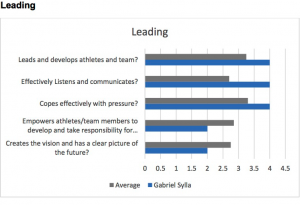
Becoming an effective leader
Some are natural born leaders, but, it takes time to build an effective leader.
An effective leader must be able to comunicate with ease first and foremost, and if one wants to share or sell their vision and have individuals buy into it, they have to be convincing, genuwine. You also have to be able to handle and minimize “resistance to change” and that takes skills.
•Jim Collins – From good to great and the social sectors (2006)
•Leading change ljohn P Kotter, 1996
It takes phases to build a leader, and if one of the following steps is skipped, you could be having trouble being an effective leader:
.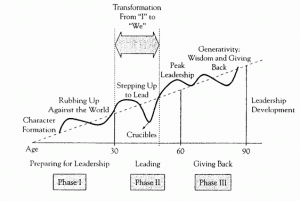
George, B. (2007) True North, Jossey-Bass.
My reflection on leadership since i have joined the HP program has led me to this important thought: ” a leader must big confident enough to surround himself with people who are better than him” i have been on many coaching staffs over the past 20 years and i have seen leaders getting rid of staff members just because they were better than them in certain areas. This should be true in many domains but specially “sport martial art federations”. The martial arts world is very hierarchical and a master in his “dojo” is never challenged and he is the supreme ruler, so the problem is when the same “people” want to run a sport federation they tend to do the same thing and forget that they are not in their dojos. They have a hard time changing leadership styles and that creates all kinds of frictions are personality conflicts! leadership is all about communication and bringing people to share your vision. By feeling implicated and empowered athletes and staff will be inspired by your message.
.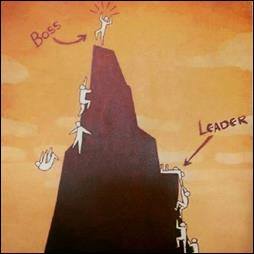
Public speaking is the number one Phobia in North America? The second greatest fear is death! it is among the findings of the Chapman University Survey on American Fears (2016) In highSchool that was a big issue for me, I used to even go to the point of having panic attacks while trying to speak in front of the entire class.I never thought i would be the leader that i’m today. i certainly never thought i would be able to coach or train national team athletes either.I overcame this fear by teaching karate, to kids. These kids made me step outside of my comfort zone without knowing it and made me feel like a super hero, I used to have the nick name: “Black Dragon” ! In 2002, I worked for a company that used to specialize in kids animation “Caméléon Animation”, if i wanted to keep my job i had to overcome my fears.
In a span of 8 years I taught karate in over 20 schools, in the same period I was also teaching adults in dojos, and than i started training athletes and discovered my true calling. I owe a lot to these kids, because they were natural, they made me forget my FEARS (specially the fear of being judged) and focus on fun and karate.
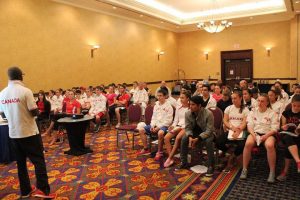
After all these years of coaching, going through the advanced coaching diploma and having the opportunity to reflect on my coaching through the high performance coaching and technical leadership program through the NCCP core competencies, i’m now in a position today to mentor younger coaches, so i want to imagine mentoring a younger version of myself and this is the advice and basic principles i would give him about being an effective leader:
• Be genuine
•Do not be afraid to take risks
• Develop a solid coaching philosophy
• Find a mentor
• Never compromise on your core values
• Know your topic before speaking publicly. The more you understand and care about your subject and the more you care about the topic, the less likely you’ll make a mistake or get off track and have a panic attack
• Find a non judgmental audience to practice:
This will put you at ease, and help build your confidence
• Get organized. Ahead of time, carefully plan out the information you want to present, know you cues by heart, Preparation is key
• Film yourself, and analyze the video, do it over andover until you are at ease and learn from your coaching mistakes
• Visualize your success. Imagine that your speach or message will go well. Positive thoughts will help decrease some of your anxiety about your social performance and relieve that unnecessary stress.
• Focus on your message and your passion, not on your audience.
• Don’t be afraid of a moment of silence. If you lose track of what you’re saying or you begin to feel nervous and your mind goes blank, it can seem like you’ve stopped talking for an eternity. Use humour…(in good taste)
• Doing things seriously without taking yourself so seriously.
•Inspire and empower people around you
• Learn to say “NO” sometimes (take care of your self)
In conclusion after reflecting the concept of leadership, i think that leadership is driven by energy and a leader has to manage 4 types of energies in order to be efficient
Ø1- Spirituel: vision, mission, core values and ethics
Ø2- Mental: Direction of attention, perspicacity and attitude
Ø3- Émotionnel: Communication, Optimism and courage while facing adversity/problems, Favouring positive emotions
Ø4- Physique «Walk the talk» and lead by exemple, Coherence between saying it and doing it
Thank you for reading me, please do not hesitate to comment or give your opinions on the subject
Gabriel
August 3 rd 2017
LEADERSHIP 2
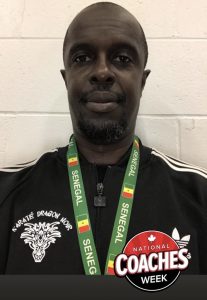
A leader must recognize his own leadership style and practice it wisely. In my last post about leadership, I reflected on my evolution as a coach(leader) and the phases I had to go through. I want to analyze where I’m today and where I’m going from here
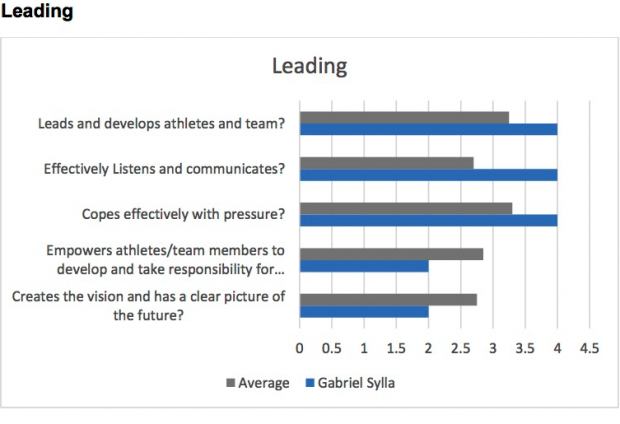
At the beginning of this program, we did a Practicum Enhancement survey
and an NCCP competency self-assessment. I want to reflect on the last two NCCP leadership core elements because I had a lower average than the rest of the cohort: 1-Empowers athletes, team members to develop and take responsibility for… 2-And Creates the vision and has a clear picture of the future.
1-Empowers athletes, team members to develop and take responsibility for…
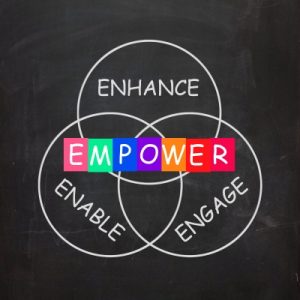
An effective leader uses frank and direct communication with his teammates to develop interpersonal relationships based on mutual trust and respect; The leader is able to positively influence the members of his team, he knows how to sell his ideas in order to motivate his troops;The effective leader is also the one who guides the team towards success and who knows how to offer support and encouragement when needed. I scored myself low because at that time I had always been in my career an assistant coach and I didn’t perceive myself as a true leader, I lacked confidence in my leadership abilities, then I read Kouses and Posner “The Leadership Challenge”. This book has shown that there are five primary ways they interact with those around them:
- Model the Way
- Inspire a Shared Vision
- Challenge the Process
- Enable Others to Act
- Encourage the Heart
After reading this book I realized that as an assistant coach I was very much in a leadership role and that my peers, athletes and other staff members rated me higher in those categories than I did myself in a 360-degree feedback process.
- Enable Others to Act and Encourage the Heart are my strong suits, they have always been, they are part of my personality, I learn this year to recognize it and use them to the fullest. It gave me enough confidence to start my own karate club. I work with a small group of athletes who were in a traditional karate system but were looking to develop as high-performance Olympic style karate athletes! We are already starting to have success at the provincial, national level.
- One of our athletes recently went to the youth world cup pushed an athlete that was ranked as high as number 7 in the world to a draw (lost by decision of the judges)
2- Creates a vision and has a clear vision of the future
A leader must have a vision for the future and be able to anticipate events in order to be able to effectively manage the changes that may occur! I lacked the confidence to be that man that inspires a shared vision.
By creating my own club I build a platform to be that kind of leader, I worked on how I presented myself as a coach, I used Facebook for that by putting up inspiring training videos, I wrote articles and shared my personal views on nutrition strength and condition and WKF (World Karate Federation) karate.
I didn’t recruit anybody, these athletes and parents came to me. Some instructors and not happy, but that is exactly how I was able to have the small team that I’m working with today. I was able to anticipate some of these reactions and calm everyone down. I was also able to anticipate the difficulties and obstacles these young athletes might face making the transition from tradition karate to sports karate.
I’m always looking to positively influence my team and guide them towards a common vision:
-Be the best that they can be!
-Be willing to work hard, with discipline and passion!
-Do things for the right reasons (performance at all costs is out of the question)
-Believe that they can achieve anything!
-Perform well in school and go to the highest heights in their sport: I recently invited Alexandra Recchia who is a five-time world championships medalist, many times European champion and France National champion but most all a lawyer in Paris. She passed her Bar exam one month before winning two gold medals at the world championships!
Inspiration is everything and I’m willing to do anything to inspire my team and keep them on the path on that common vision we all share. Communicating with my team and practicing active listening is critical
Identifying the concerns and aspirations of people around me, not just my own, allows me as a leader to join, inspire more people to my cause. athletes in a club need to have a common vision that they share with each other and their coach to be even more involved.
I share inspiring personal stories all the time and talk about my vision of the future, and how I arrived at that conclusion. I plan and share with them short- and medium- and long term objectives, show them how they can contribute collectively to the obtain expected results with Gap analysis presentations, structured annual plans. Last but not least I always acknowledge their accomplishments and make them feel good about themselves, this is one of the main reasons why I’m coaching!
Nice read, You’ve certainly come a long way. In the past few years, You’ve gained enough knowledge, maturity and experience. This is your time to step up to the plate.
If I may add a bit of advice to add to your already awesome mentoring list, this is it:
“They don’t care what you Know until they know that you care”
Cheers
Gerard